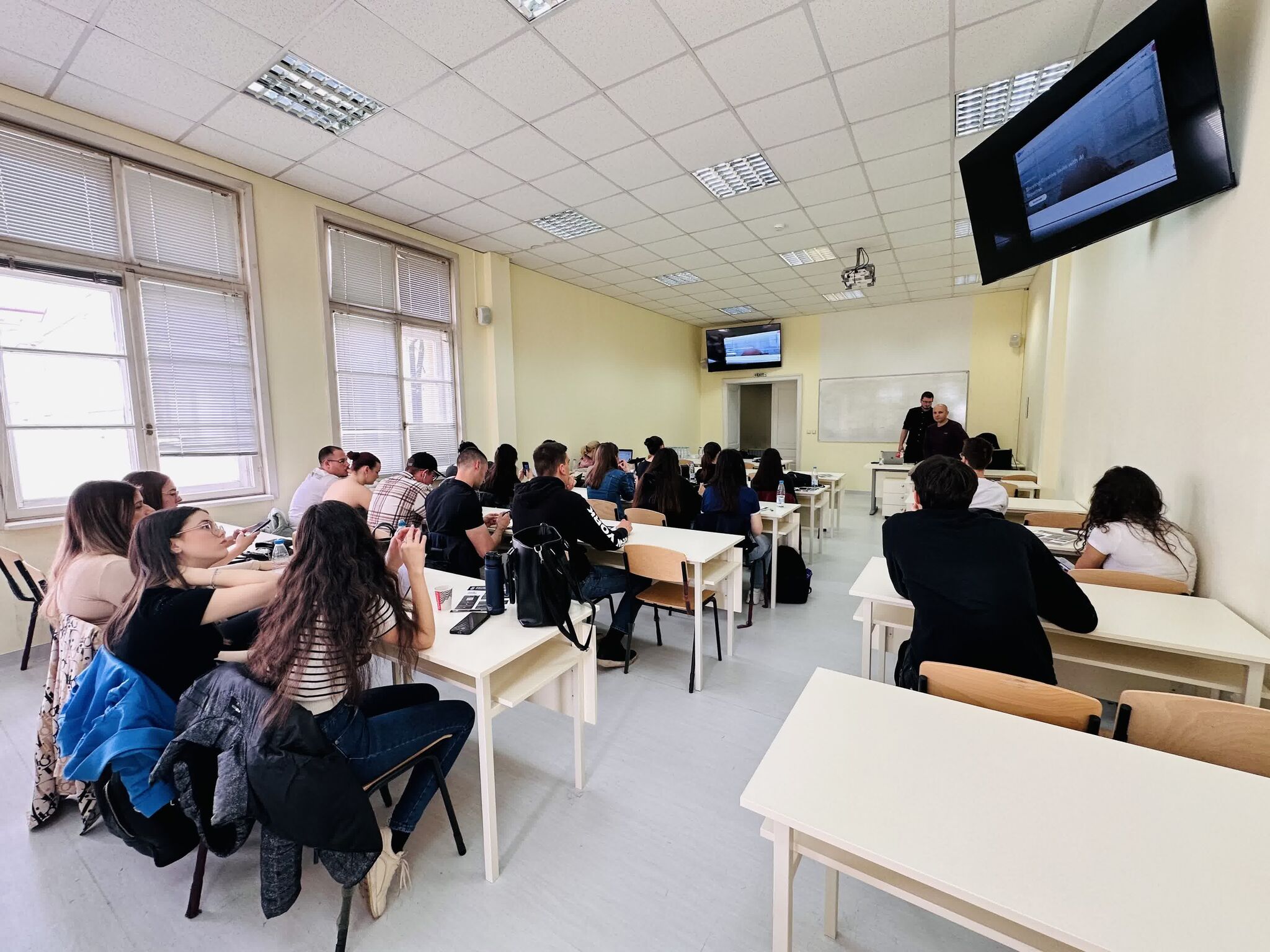On July 21, 2025, Arvana GmbH welcomed educators, innovators, and creative professionals to Berlin for the second CreaTech Nexus Multiplier Event. As part of the Erasmus+ initiative CreaTech Nexus – Elevating Creative Skills with AI Expertise (Project Number: 2024-1-DE02-KA210-VET-000245473), the event served as an important platform to share project results with a German-speaking audience and to explore how artificial intelligence is reshaping the intersection of education and creativity.
From the very beginning, the program focused on connecting ideas with practice. The event opened with an introduction to the CreaTech Nexus project, outlining its goals, the partner network, and its key outputs. Special attention was given to the CreaTech Assessment Tool and the handbook “Empowering Creativity in the Digital Era.” Rather than limiting the presentation to a theoretical overview, these resources were demonstrated in real-world educational and creative contexts, showing how they can be directly applied to support vocational training and innovative workflows.
One of the highlights was a panel discussion featuring voices from both the education and creative industries. The panelists shared firsthand experiences of how AI is already influencing classrooms, training strategies, and even business models in the creative sector. Their contributions offered valuable insight into the challenges and opportunities that digital transformation brings. This was followed by an interactive workshop, where participants could experiment with the project’s tools themselves. By simulating real applications in vocational education, the workshop created space for hands-on learning and sparked lively conversations about how AI can be embedded in training programs.
Throughout the day, dialogue was at the heart of the agenda. With 27 participants in attendance—including startups, established companies, educators, creative professionals, and internal representatives from Arvana’s own departments—the event brought together a rich mix of perspectives. This diversity fueled meaningful discussions, not only about the technical implementation of the CreaTech tools but also about broader questions of ethics, transparency, and the evolving relationship between human creativity and AI. Many attendees expressed interest in applying the handbook and tools for internal training, curriculum design, and innovation initiatives.
The outcomes extended beyond dissemination. The Berlin event sparked ideas for future collaborations, including joint Erasmus+ applications, and gave participants a deeper understanding of how to integrate AI responsibly and effectively into their own contexts. By embedding the project results into open discussions, live demonstrations, and collaborative workshops, the event underscored the practical value of CreaTech Nexus and positioned it as an action-oriented initiative for digital capacity building.
Just as importantly, the event proceeded exactly as planned. Hosted at Arvana’s Berlin office, it offered a professional yet interactive setting where participants felt encouraged to engage, reflect, and contribute. From the opening presentation to the closing discussion, the agenda was carried out as envisioned, ensuring that all dissemination goals were fully met.
In the end, the Berlin Multiplier Event was more than a showcase of project results—it was a living example of how cross-sector collaboration, creative dialogue, and hands-on exploration can bring European innovation projects to life.



.png)


